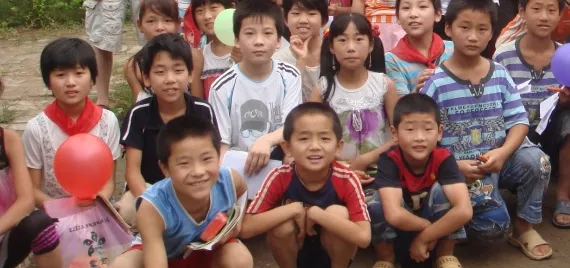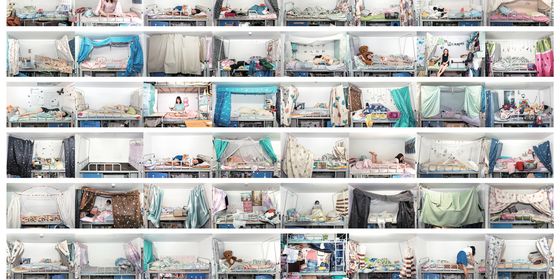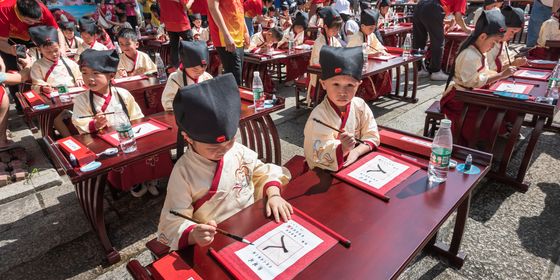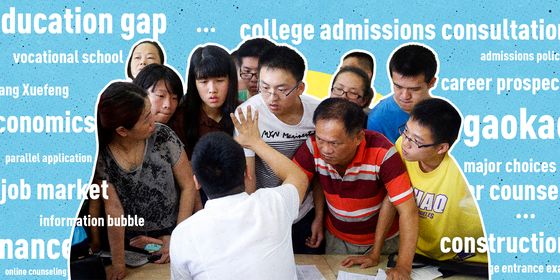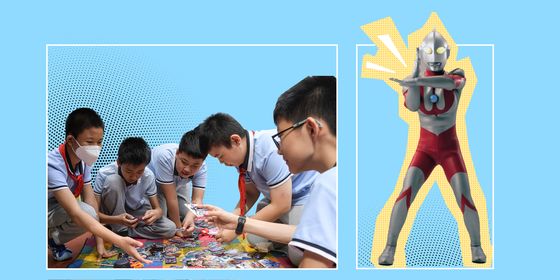An interview with Corinne Hua, Founder and Executive Director of Stepping Stones
Corinne Hua founded Stepping Stones in 2006, whose volunteers teach English to migrant children for free. These classes are perhaps the children’s only opportunity to learn standard and proper English from expatriates and Chinese English speakers. Believing that English is the biggest differentiator between urban and rural Chinese children, Stepping Stones tries to give migrant children a better future in its own way.
HOW DID YOU START STEPPING STONES?
I was working with a local NGO in 2006, and we were visiting migrant schools in Shanghai to hear their needs. When I went to the schools, the principals all expressed their wishes to have English lessons. I happened to know a few people who wanted to volunteer and wished to help migrant children, so this program was born.
WHAT WERE YOUR FIRST IMPRESSIONS OF MIGRANT SCHOOLS?
When I went to the migrant schools in 2006—before the Shanghai government closed the smaller, substandard and mostly unregistered private schools—most of them were in fairly poor condition. Some were started by business people who just wanted to make money out of the situation, but some were run by principals who really wished to make a difference and provide migrant children with the chance for an education. The English teachers at these schools lacked the proficiency and training to teach English, some of them only having a high school degree. So, they depended on the textbooks and often could not speak English well themselves. Some schools only had dilapidated desks and chairs in over-crowded classrooms. Migrant schools are mainly located in Shanghai’s suburbs such as Minhang, Pudong, Baoshan. Many of these areas, far from the city center, are mainly inhabited by migrants, and some parts could be called “urban slums”. It is very typical for a family of four to six people to live in just one or two rooms. Some homes do not have running water, so they have to share a water pipe and public cooking and bathroom facilities.
DO YOU THINK THE SHANGHAI GOVERNMENT DID A GOOD THING IN TAKING OVER THE MIGRANT SCHOOLS?
Mostly. It certainly stopped the profiteering and also got rid of the substandard schools. By providing free public education for these children, they have better facilities, better teachers, and better resources, although still not up to the standard of the schools for Shanghainese children. The government can also better regulate the schools. One big problem is that now some kids have to travel further to school whereas before they could only choose one close by. Still, not all migrants working in Shanghai are able to get their children into a school here, so a lot of children are still left behind at schools in rural areas.
DO STEPPING STONES VOLUNTEERS ONLY TEACH AT PRIMARY SCHOOLS?
Yes, and the reason we only teach at the primary level is that, in middle schools, the migrant students are generally mixed in with the Shanghainese students, so they enjoy better resources and cannot
be separated out for special classes. Middle schools also have a more intense and structured curriculum, so it is impossible to fit in our extra oral English lessons. In primary schools, they can usually find slots for our lessons. Volunteers also teach in the community centers, many of which are run by migrants themselves. There, they offer lessons to kids on weekends and also tutoring.
WHAT ARE THE EDUCATION PROSPECTS FOR MIGRANT CHILDREN?
Because of residence registration issues, they are not allowed to attend Shanghai high schools. Some of them go back to their hometown if they intend to go to high school, because in order to be admitted into high school back home, they need to be studying in their local middle school. Then, they go on to take the college entrance exam and go to college. For those who do not go back, they may choose to go to a vocational school in Shanghai, which is usually filled with migrant children, since local Shanghainese will rarely train at a vocational school for, say, hairdressing or becoming an electrician. Shanghai has instituted a new policy that allows migrant children to attend high schools in the city, but there are many conditions. For example, the children’s parents need to have attended tertiary education themselves, which rules out the majority of migrants in Shanghai. The hukou is a bit of an anachronism in today’s mobile society, and it is unfair to allocate health, education, and social benefits in terms of where you come from or discriminate according to what family you are born into. It definitely needs to be reformed, but the government hasn’t figured out how to do it. There is still a lot of debate among the decision makers. In the near future, migrants and their children will still have less access to urban resources.
HOW DIFFICULT WAS IT TO START STEPPING STONES?
Very difficult. We absorbed other programs who were doing similar things, and grew step by step. It was impossible for us to register in Shanghai, so we registered in Hong Kong first. After many different attempts, we were finally able to register Stepping Stones as a Chinese organization, with the focus on youth development instead of education. The government recognizes the value of encouraging youth volunteering and encourages it. But, they are a little uncomfortable about having foreigners teach primary school children. It is hard for them to understand that the foreigners’ motivation is simply that they want to help. Some schools that we approached in the past suspected our intentions or considered it too risky to have foreigners teaching their students. They worried about volunteers saying or doing the wrong things and about being challenged by the Education Bureau. If there are potential risks involved, then it is easier just to say no. But, ever since 2006, there have always been plenty of schools that wanted our teaching programs, and we have built our reputation through teaching in dozens of schools and community centers throughout Shanghai over the last eight years.
IDEAS FOR STEPPING STONES’ FUTURE?
There are around 500,000 migrant children and around 160 migrant schools in Shanghai, and we are reaching only a little more than 4,000 of the students and 11 of the schools. Migrants will continue to come into Shanghai for the foreseeable future, so we envisage growing, as well as doing more rural trips, which, as well as taking English teaching volunteers to other disadvantaged areas, also helps bring in a little money to fund the Shanghai program. As long as the need is there, we will keep going.
Master Image courtesy of Attila Balogh





